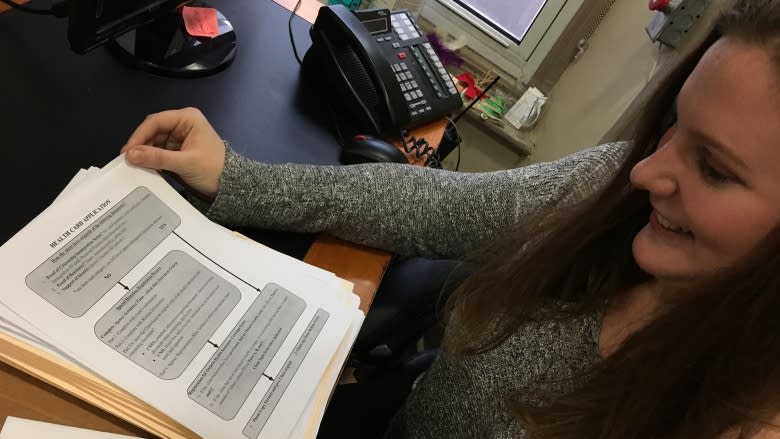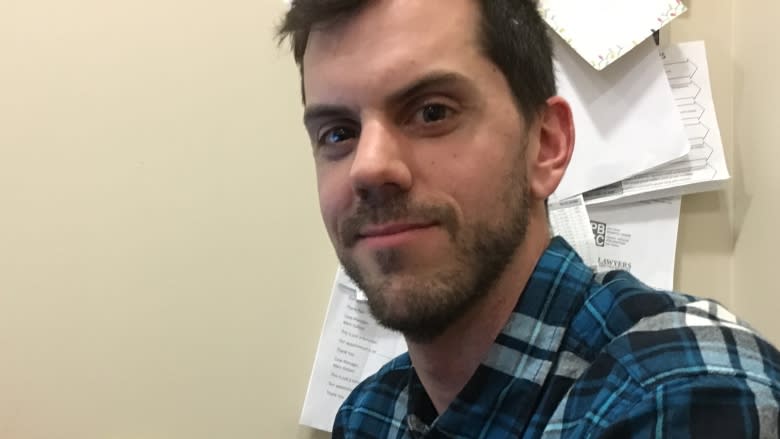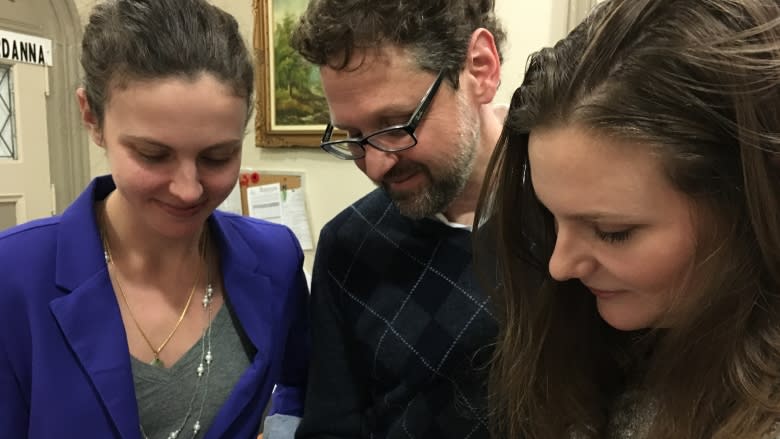Project helping homeless overcome 'huge barrier' — lost ID
A new pilot project is helping people from one of Ottawa's most vulnerable populations replace lost or stolen identification — a process organizers say is simple for most, but "a big mountain to climb" for those living on the street.
Pro Bono Students Canada, the Ottawa Mission, Borden Ladner Gervais and Lawyers Feed the Hungry are working together on The ID Project, where volunteers help clients fill out forms twice a month.
"I think a lot of us take it for granted that you would have identification," said Emily Cumbaa, a 28-year-old law student from the University of Ottawa.
"It's a huge barrier for people who are homeless or precariously housed."
Fellow law student and volunteer Sarah Gauthier, 26, said losing a piece of ID is more than an inconvenience for people who are homeless.
"This miniscule little piece of paper ... or card can affect whether or not you can get social housing or Ontario Works," Gauthier says. "Those are things you need to live."
Lack of ID can cause big delays
Marc Gallant, the assistant manager of client services at the Ottawa Mission, said for people who frequent shelters, filling out forms isn't just frustrating or confusing: it's nearly impossible.
For those who can't read or write, and who have no way of getting to a Service Ontario location, Gallant said the process is "a big mountain to climb."
"It sometimes prevents people from applying and eventually moving out of the shelters. It's very, very important."
Since many forms require another piece of ID, these volunteers say losing a passport, health card or birth certificate can have a cascading effect.
"It's certainly a challenging process sometimes to get from A to Z, because it's not just filling out one form," explained 47-year-old Kirk Boyd, a partner at Borden Ladner Gervais and a volunteer with The ID Project.
Law students gain valuable experience
Navigating government bureaucracy is something familiar to Cumbaa.
"Unfortunately, or fortunately, one of the things that legal training provides is the ability to fill out forms," she said with a laugh.
Cumbaa said working pro bono for The ID Project provides more than a warm feeling: it also allows the legal community to work with a population that has had a complicated relationship with the justice system.
For Gauthier, the project is a way to develop better interviewing and counselling skills.
"Law, for me, wasn't just to get into a larger corporation and do that paperwork stuff," she said. "I want to help people every day."
The ID Project runs every third and fourth Thursday from 3 to 5 p.m. at the Ottawa Mission.




